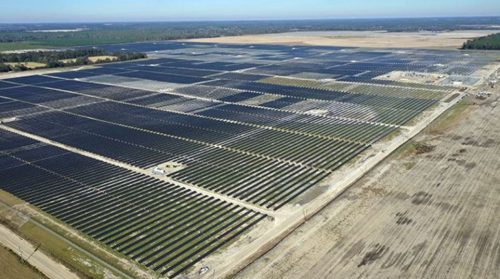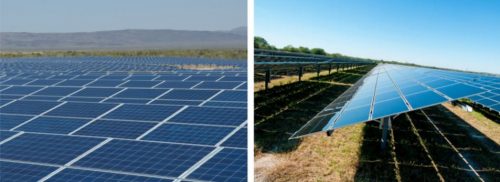
Duke Energy has opened the 74.9 MW (megawatt) Hamilton Solar Power Plant in Jasper, Florida. Duke Energy Corporation, with headquarters in Charlotte, North Carolina is an electric power holding company. It employs 29,000 workers and has a generating capacity of 49,500 megawatts. It also has assets in Latin America and Canada.
The carbon-free power plant uses solar energy to generate electricity. At peak production, it can supply 20,000 homes with electricity.
The company says that across its Florida service territory, 1.8 million customers now benefit from 300,000 solar panels.
Duke Energy statement
State President of Duke Energy Florida (DEF), Catherine Stempien, said:
“Duke Energy solar projects bring the greatest amount of renewable energy on line for customers in the most efficient and economical way.”
“Building solar power plants like Hamilton is part of our ongoing strategy to offer sustainable, diverse and smarter energy solutions that our customers have told us they value.”
The company says that it aims to install or acquire 700 MW of solar energy by the end of 2022 in Florida. Duke Energy Florida today owns and operates almost 100 MW of solar energy resources.
Other investments
Regarding other investments, the company says:
“Duke Energy is making strategic, targeted investments in battery storage technology, transportation electrification to support the growing U.S. adoption of electric vehicles, and a modernized power grid to deliver the diverse and reliable energy solutions customers want and need.”

What is solar energy?
Solar energy or solar power refers to capturing the Sun’s energy and then converting it into electricity. We can then light up and heat our homes and businesses with that energy. We also use it to power factories, machines, electric cars, etc.
The energy of the Sun is in the form of solar radiation. Solar radiation makes it possible for us to generate electricity.
Solar power is renewable energy. In other words, it uses a source that is everlasting. We never run out of the Sun’s energy. ‘Everlasting,’ in this context, refers to a human timescale rather than a geological or astronomical timescale.
Other types of renewable energy are, for example, wind energy, geothermal energy, and hydropower. Biomass energy is also a type of renewable energy.
